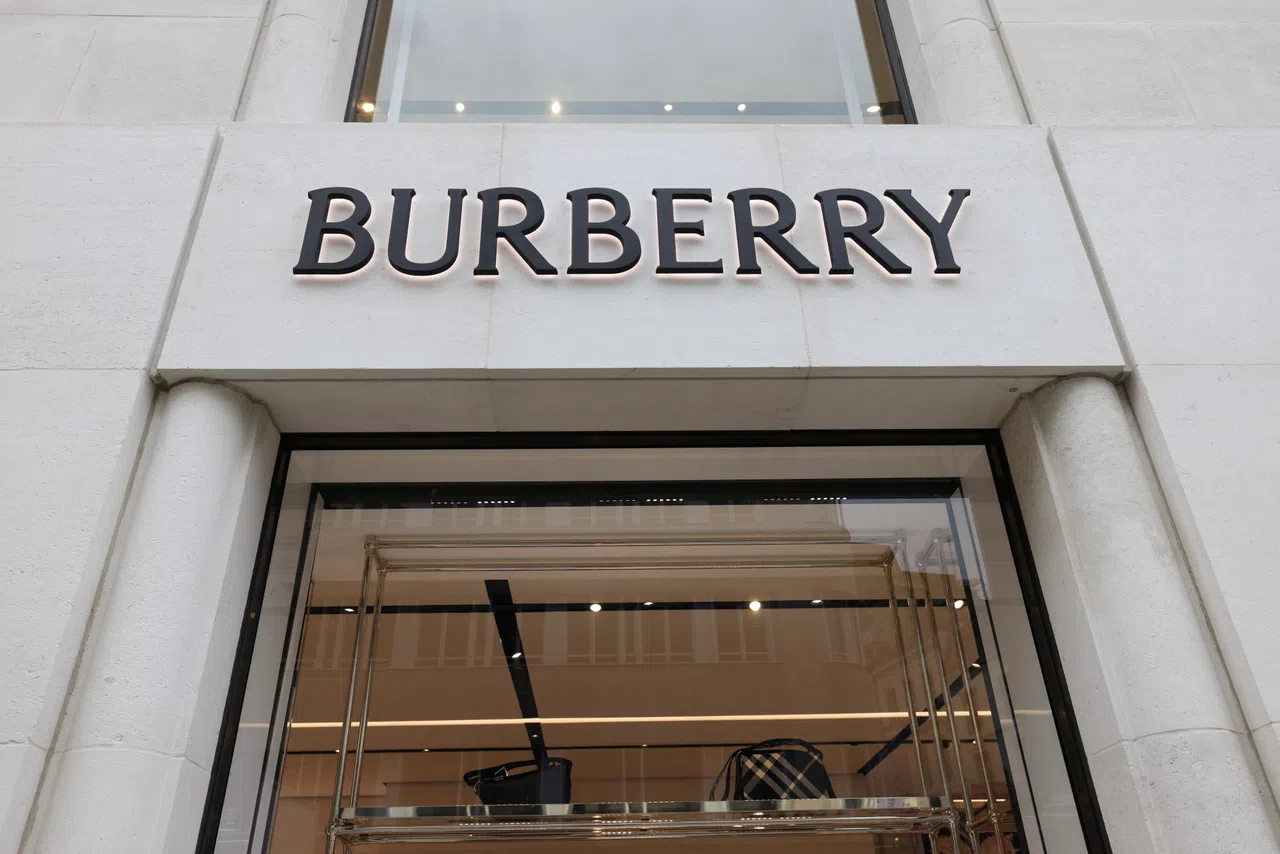BURBERRY will put the focus back on its core trench coats and scarves, be less ambitious with prices for bags and shoes, and use its British heritage appeal to win back customers, the struggling luxury brand said on Thursday (Nov 14) in a strategy update.
The company reported a loss for the first half of its financial year and announced a £40 million (S$68.2 million) cost savings programme, as new CEO Joshua Schulman laid out his turnaround plan.
“Today, we are acting with urgency to course correct, stabilise the business and position Burberry for a return to sustainable, profitable growth,” Schulman said in a statement.
Schulman is Burberry’s fourth CEO in a decade, and the brand has also seen three creative directors in the last seven years, each bringing new styles and logos that confused the brand identity.
“Over the past several years, we moved too far from our core with disappointing results,” Burberry said. “Our product was weighted to seasonal fashion with a niche aesthetic obscuring our more timeless core collections.”
Burberry made an adjusted operating loss of £41 million in the first half and said it was too early to tell, with the crucial festive period ahead, whether it would make a profit for the full year.
BT in your inbox
Start and end each day with the latest news stories and analyses delivered straight to your inbox.
Sales in Burberry’s second quarter ending Sep 28 fell at the same pace as the first, with revenue for the first half down 20 per cent in constant currencies.
Burberry signalled that its price increases had gone too far, saying prices, particularly in leather goods, “did not always align with our category authority”.
Burberry’s creative director Daniel Lee, who joined the brand two years ago, had made his name at Bottega Veneta with a series of top-selling “it” shoes and bags. But his designs at Burberry, which is not primarily known for leather goods, have not found the same success.
Leather goods and shoes underperformed in the first half, Burberry said, while outerwear did better than average.
Asia-Pacific was the weakest region in the second quarter with sales down 28 per cent, while sales in the Americas fell 18 per cent and Europe, Middle East, India and Africa declined by 10 per cent.
Burberry shares are down nearly 50 per cent this year and the company is widely seen as a takeover target. Recent media reports that Italy’s Moncler was preparing a bid had boosted the stock, but sources close to the matter denied any talks were underway. REUTERS






